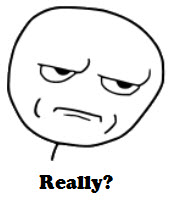It's an oversimplification to say that Miller's work is simpler or shittier, and thus easier to film.
Alan Moore tends to do two things in his work. Firstly, he works a lot of the visual limitations and advantages of the comic book medium into the plot itself - in Watchmen, the exact same blood spatter shows up so many times hidden in the background that it becomes kinda mind-blowing when you realise it. Freeze-frame bonuses, as they're called in cinema, are much more effective in a comic book than they are in a film. V for Vendetta is a really good example - the way he worked the number 5 and the letter V into almost everthing borders on the pareidoliac.
The other thing Moore does is really long, expository monologues/duologues, which have become much more obvious and irritating in his later work than it was in his 80s stuff. Done well, this ends up like the Doctor Manhattan on Mars chapter of Watchmen. Done badly, it ends up like Promethea, which was less of a comic book and more of an illustrated essay on gnosticism.
Both those elements translate very poorly into film. It's hard to work in clever background references and puzzle-like literary tricks when the words are being heard and not read and the film is moving at a brisk pace.
Frank Miller, on the other hand, I've always considered the polar opposite of Alan Moore in terms of style and method, but not quality. Unlike Moore, Frank Miller's dialogue is grounded and riddled with (sometimes fictional) slang, as well as being paced and punctuated in the way that people actually talk in real life. His ever-present narrative monologues, on the other hand, are purple as a bruised eggplant and swing wildly between brutally poetic and just plain repetitive. Most adaptations of Miller's writing either exclude the monologues entirely (such as the animated adaptation of TDKR) or play it up for the pulp value (Sin City). But they benefit from the more informal style of his dialogue; it's easier to translate into film.
Alongside that, Miller's scripts tend to push the artist into distinctive, very striking poses that can translate well to film, especially if you punctuate it with slow motion like Snyder did in 300. And when he's doing the art himself, he produces the occasional masterwork like the memorable lightning-strike image from TDKR, which has become so heavily associated with Batman that I'm legitimately surprised it didn't show up in BvS.
Overall I'm kind of tired of the Miller-bashing that the internet has become so fond of in recent years. We get it: All-Star Batman and Robin was a turd sandwich. But people just try and retroactively piss all over his prime work like the last two decades didn't happen. The idea that Miller is a craven book-troll desperately trying to be edgy and Moore is a literary demigod whose every word is laden with deep philosophical meaning is, ultimately, just posturing. Both are excellent writers who peaked in the 80s, petered out over the 90s, and then went fucking crazy in their own separate ways.
(Have you read Lost Girls? It's a love letter to underage sex with astonishingly awful art.)



